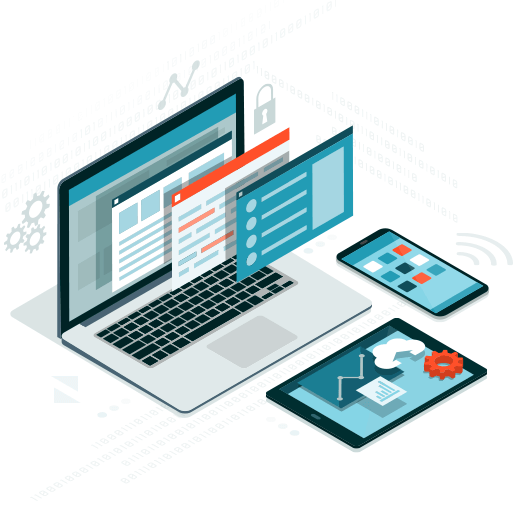What is a Ticket Management System?
A ticket management system in its simplest definition is a software that enables the best representation of issues in an organization. These issues are solely represented on the customers' feedback including customers' feedback on the direct services to the people.
A general ticketing system should be able to address customers' issues and escalate them to the right organization levels of the organization. Any company should have a well-formed organizational framework that can deal with all escalations arising from the dissatisfied customer experience.
The ticketing management system not only checks the customers' disputes the system also received customer feedback of appreciation of the companies products.
The Remote Monitoring and Management
The Remote Monitoring and Management (RMM) is the ticketing management system framework that is involved with supervision and controlling Information Technology systems allowing efficient communication between a customer and the organization.
The RMM provides a connection by ensuring networking devices and other peripheral hardware such as desktops, servers, and mobile end-users communicate efficiently. The RMM functions that are directly related to the ticketing management system includes:

- Detecting newer customer devices by assigning a unique RMM identifier used for relaying the right escalation measures for the feedback. The identifier acts like an IP address so that the organization level doesn’t experience any difficulties identifying customers' location.
- Observing the behavior of the remote device where the customer is located at. It provides an end-to-end connection between the customer and the organization. The RMM performs a cross-examination check by ensuring that the connection is up to the intended task.
- The RMM provides software updates as well. The updates act as buffer attachments of the customer feedback. Providing software updates is very crucial to ensure that at no single time is connection lost. In other words, through updating communication software, the communication channel is conjoined.
Conventionally, organizations had to adopt manual ways of handling the ticketing management system tasks. The RMM is changing the way the tickets were handled by offering online-enabled capabilities.
Benefits Associated with Using a Ticketing Management System
Efficiency
Because of the increased scalability of organization response rates to customers' requests, efficiency is greatly enhanced. The direct point interaction enhanced customer satisfaction levels and as such promotes a good working relationship of the company to the customers.
The customers can trust the organizations' services offered and in turn efficiency is achieved. This is among the leading key roles that the ticket management system is playing.
Speed
Gone are the days of customers waiting for g for weeks and months for their service requests to be handled. Within a split of a second, the ticket management system can scan around the incoming users' requests and act on them accordingly.
This is archived by the ticket management system adopting a scheduling method of First In First Out (FIFO). The strategy allowing equally unique times for preceding issues raised to be addressed. Speed is a very important feature of any organization in terms of how it handles its various activities.
Professionalism
Professionalism was greatly underestimated in most organizations but has recently been found in the organizational considerations. Several features can lead to an organization being ranked as unprofessional. For instance, sending out updates should be done with utmost priority and regard. A ticket management system is all about professionalism.
The best message updates and notification features relayed through the ticket management system enabled fast-tracking of customer services as their concerns are handled and addressed quickly.
Statistics Analysis
A ticket management system allows records and customer concerns to be presented uniquely in an organization. The best representation of customer concerns is paramount in ensuring that the right remedy is provided to the right customer concern.
This means that there is a coordinated functionality between the customers and the organization itself. Other than that ticket management systems ensure that records are kept uniquely for future references. Through statistical software such as R and SPSS, the customers' specific feedbacks are organized amicably.
In future, if the organization needs to scan back and trace their customers' satisfactory levels, it could just go back to the history offered by the ticket management system. Upon pulling up the historical data key inferences and conclusions can be drawn.
Conclusion
A ticket management system is important for any running of an organization. It is relevant and rational to adopt the best ticketing policies for an organization. Organization managers that deal with customers' helpdesk and support systems should well be informed of the advantages that the Ticket management system is offering.